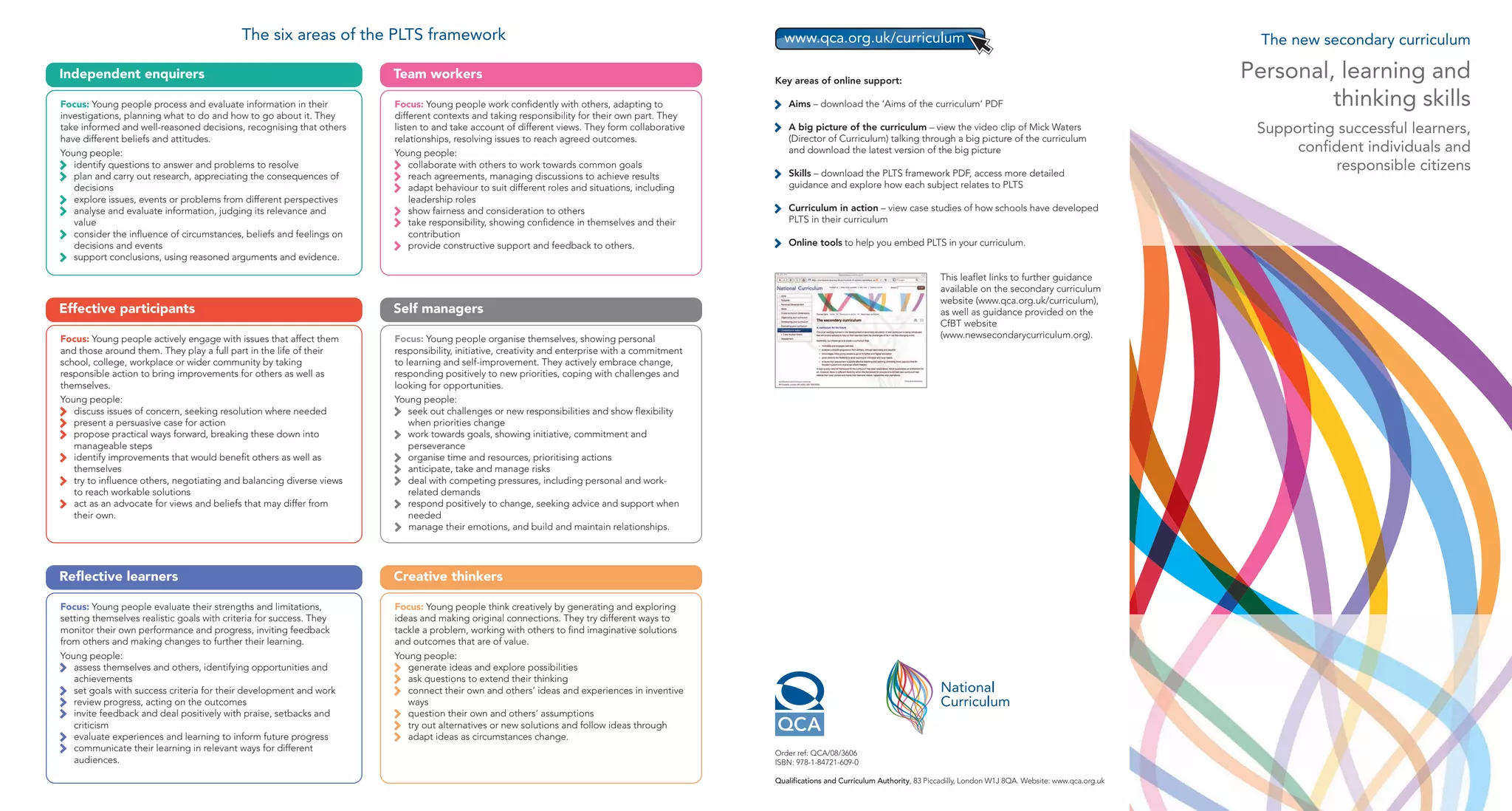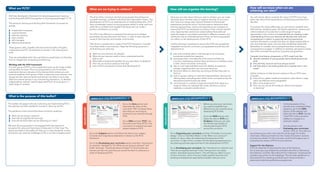The document provides guidance for schools on developing personal, learning and thinking skills (PLTS) in students. It discusses the six areas of the PLTS framework: independent enquirers, creative thinkers, reflective learners, team workers, self-managers, and effective participants. It directs schools to the secondary curriculum website for further resources, including case studies of how schools have embedded PLTS across their curriculums. The guidance is organized around three key questions for developing PLTS: what schools are trying to achieve, how learning will be organized, and how schools will evaluate their success in achieving aims.

